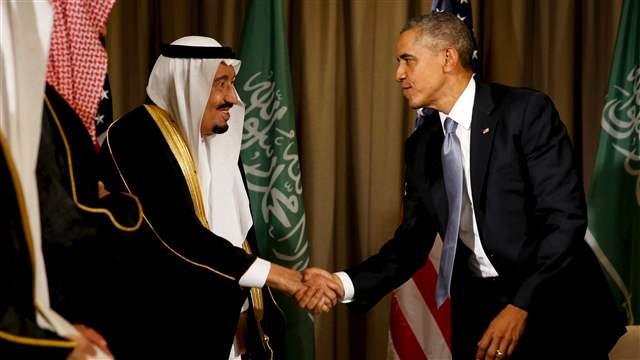Analyst says U.S. weighing costs and benefits of alliance with S. Arabia

TEHRAN - A professor of political science at Georgetown University says the United States is reviewing the advantages and disadvantages of its alliance with Saudi Arabia as the kingdom’s “regional actions have created policy challenges” for Washington.
“The Unites States appears to be reevaluating the benefits and disadvantages of its alliance with Saudi Arabia,” Shireen Tahmaasb Hunter tells the Tehran Times.
Following is the text the interview:
Q: Why did the Obama administration threaten to veto a bipartisan bill which allowed families victimized by the 9/11 terrorist attacks sue Saudi Arabia.
A: The bill in question is about releasing the 28 pages of the report issued by the committee which investigated 9/11 events and looked into those involved in perpetrating it and which so far have not been released. Those who oppose the bill, believe that these pages may contain evidence of possible involvement of Saudi officials with the terrorists who committed the act. If this were to happen it could seriously damage Saudi-U.S. relations which are already strained over the Iran nuclear deal. The Saudis have threatened that they might sell off the assets they hold in America which also could be damaging to the U.S.
Therefore, the president might have just wanted to discourage the House of Representatives from passing such a bill.
Q: Some argue that Saudi Arabia’s strategic importance to the U.S. is fading away. Do you agree with such a view?
A: From an energy and security perspective Saudi Arabia is still important to the US. However, some Saudi actions especially the spread of extremist Wahhabi ideology which have encouraged groups such as the Taliban, ISIS, Boko Haram, etc, and some of its regional actions have created policy challenges for America. The Unites States appears to be reevaluating the benefits and disadvantages of its alliance with Saudi Arabia. If Iran and America reestablish relations and Iran abandons its anti-American stance Saudi Arabia's importance would further decline. This is one reason why the Saudis are so angry about the Iran nuclear deal.
“Some Saudi actions especially the spread of extremist Wahhabi ideology which have encouraged groups such as the Taliban, ISIS, Boko Haram, etc, and some of its regional actions have created policy challenges for America.”
Q: In the summit between GCC leaders and President Obama in Riyadh on April 21 the two sides agreed on establishing joint patrol forces against Iran. Doesn’t the move mean that Arab states bordering the Persian Gulf are seeking to impose a military agreement, such as NATO, on the United States?
A: Statements regarding establishing common naval patrols in the Persian Gulf are largely meant to reassure the GCC countries that the U.S. and the West, in general, will not leave them undefended. But it is highly unlikely that any NATO type arrangement will be made with the GCC countries. The Western powers or for that matter China or Russia would not want a regional country such as Iran dominate the Persian Gulf. However, the U.S. president also said that the Arabs and Iran should resolve their differences, meaning that at least President Obama does not want to exclude Iran from regional arrangements. It depends on Iran by improving its relations with the U.S. and other Western countries to make sure that it will be included in any regional arrangements should they develop in the future.
